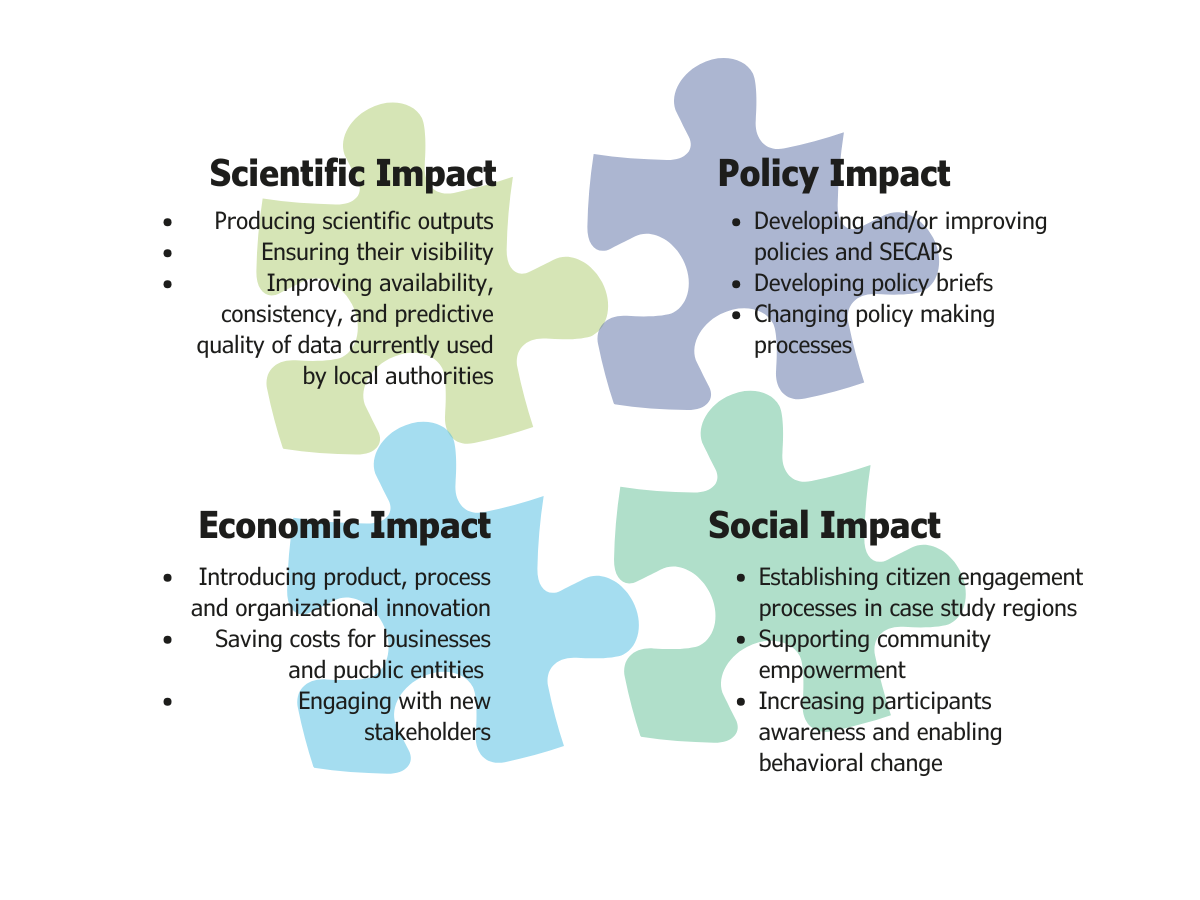
Recently, colleagues from T6 have delivered an internal intermediate report providing insights into the main achieved impacts in the first three years of LOCALISED, looking at specific variables and indicators within scientific, policy, social, and economic areas, combining both qualitative and quantitative methods.
Scientific Impact
Regarding the scientific impact, 10 papers have been published to date, with 3 more under review and approximately 17 planned for submission in the coming months. PhD students involved in LOCALISED are also close to submit their final theses. The Data Sharing Platform (DSP), fully operational since month 36 of the project, serves as a unified access point for diverse datasets on decarbonisation pathways, climate projections, and regional features. This data is spatially disaggregated at the Local Administrative Unit (LAU) level and re-aggregated to higher NUTS levels to support specific queries. Additionally, significant research has been conducted on the side effects of climate actions on vulnerable groups, enhancing the Climate Action Strategiser (CAST) to account for social impacts. The DSP and work done on Social Impact Assessment (SIA) have improved data quality, accessibility, and consistency. The Net-Zero Business Consultant (NZBC) introduced a novel business vulnerability index, shifting focus from macro to business-level climate change effects. LOCALISED partners also participated in 7 conferences, organized 4 events, and presented at ten external events, reaching approximately 30,000 people.
Policy Impact
Policy impact will become more evident following the upcoming release of CAST, focusing on its influence on adaptation and mitigation plans and policymaking processes. The benchmarking feature will aid local authorities in identifying effective measures from similar contexts. To date, one policy brief addressing disparities from asymmetric climate change investments has been published, with seven more anticipated, including two from collaborations with related projects.
Social Impact
Social impact monitoring encompasses changes in awareness and behaviors regarding climate actions among tool users, especially thanks to the adoption of the Citizen Engager (CE). At the current date, social impact mainly resulted from a series of 9 sessions carried out between April 2024 and July 2024 by the City of Barcelona as part of the project “No One Left Behind: Active listening sessions for vulnerable groups to guarantee climate justice” framed within LOCALISED, where 42 participants from vulnerable groups have been engaged. Results show high satisfaction (89%) and increased climate change urgency (71%) among participants. These sessions have provided support to the CE’s role in enhancing community involvement and awareness.
Economic Impact
Economic impact will be clearer as tools adoption progresses, potentially boosting business innovation, cost savings, and new partnerships, that may eventually extend beyond LOCALISED’s duration. LOCALISED has also fostered over 70 new collaborations and supported the recruitment of 21 individuals, including 14 young researchers and 10 women. Four project proposals emerged from LOCALISED collaborations, with three accepted, generating €846,250 in funding for partners.
In conclusion, the LOCALISED project has successfully delivered significant impacts across scientific, policy, social, and economic domains, promoting evidence-based decision making, empowering communities, and driving sustainable economic growth. Its work contributes to fostering a more resilient and environmentally conscious future in Europe and beyond.

Recent Comments